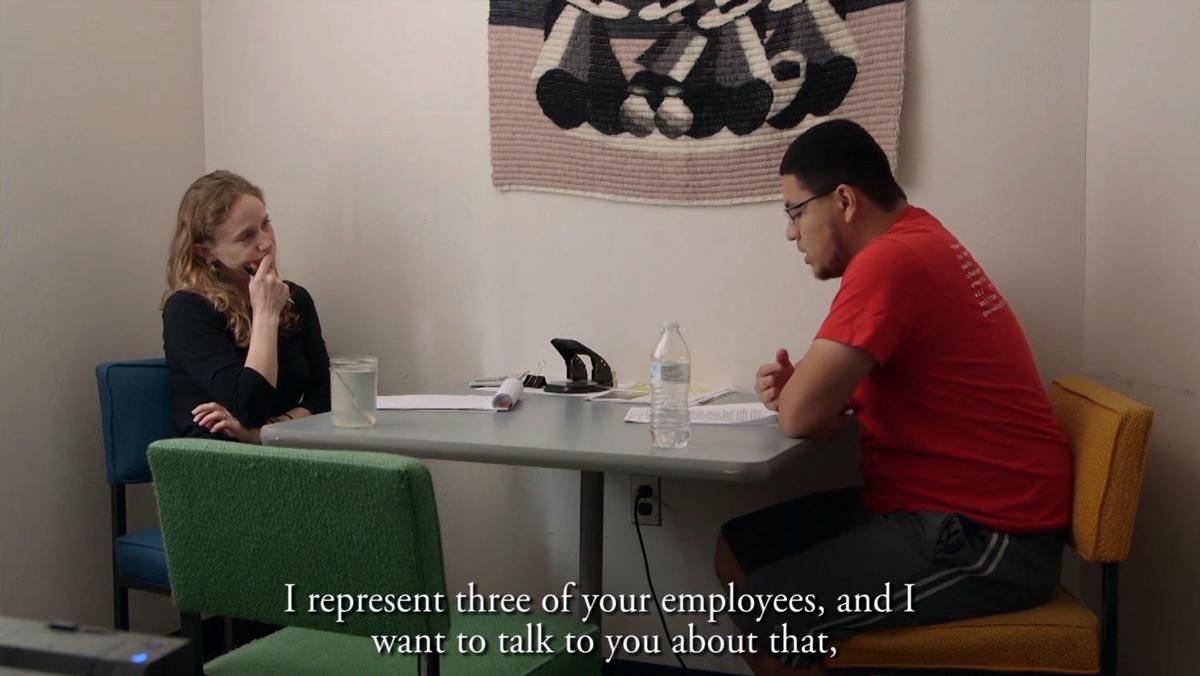To the unscrupulous employer it’s all a numbers game.
They will promise a certain wage and then pay less, they will let someone work for months and then fire them without pay, they will demand overtime labor but only cover regular hours. If anyone complains, they get shown the door and they hire someone else. Hire. Cheat. Repeat.
Consequences are rare. Employees either keep their heads down and accept the situation or get fired and decide it’s not worth fighting over. Their time better spent finding a new job, or in the case of immigrants in the country illegally, the fear of being deported adds another layer of worry.
“The calculus for these employers is that every few years they have to pay out a few thousand bucks to settle a claim, but it’s more beneficial to keep on underpaying,” said Nina Rabin, director of the Workers’ Rights Clinic at the University of Arizona James E. Rogers College of Law.
The clinic, which opened in 2007, offers free legal services for immigrant and low-wage workers who have been abused or exploited by their employers. It provides law students with real world experience and gives workers the chance to affirm their rights.
The challenges faced by workers as they pursue those rights is the subject of the new short documentary “The Cleaners,” which will be screened Thursday at The Loft. The film, which was produced by documentarian Lisa Molomot and UA students, follows the case of three women fighting for stolen wages.
“These three women were being paid less than the minimum wage for over a year. When they realized this was going on they told their employer and he ignored them,” Molomot said.
Initially the filmmaker and the students thought they had a much larger case on their hands, since other cleaners were also being paid less. But no one else wanted to act, which made the women’s position more precarious. Although it is illegal for an employer to retaliate, it is all too common.
“We see harassment and retaliation all the time,” Rabin said. “Workers that are seen trying to stick up for themselves or speaking out on behalf of co-workers are then either fired or demoted in some way.”
Consequences for employees are real, whether they have the law on their side or not. When potential clients first visit the clinic, they are counseled on their rights and their options, but also on the risks they may be taking. For workers who are in the country illegally, the Trump administration’s hardline position on immigration has made it easier for employers to take advantage of their situation.
While the clinic doesn’t discourage anyone from pursuing a claim, the change in the government’s enforcement priorities — from generally ignoring immigrants without a criminal record to targeting anyone in the country illegally — has made some workers rethink complaining about their employers. “People are worried about calling attention to themselves in any way; we’ve definitely had more people decide not to pursue claims,” Rabin said.
While Molomot swore me to secrecy on how the story in “The Cleaners” turns out, I can say the film does a good job of capturing the difficulties low-wage employees face when they simply ask for what is owed. It took almost six months of back and forth discussions between clinic workers and the women’s employer — a subcontractor working for a company hired to clean a large retail store — before any resolution was reached. Even then, the denouement was bittersweet.
But regardless of the outcome, which you should see for yourself, the experience for the three women and their participation in the film was empowering, Molomot said. “They know their rights, they know the law and they’re not scared of their employer.”





